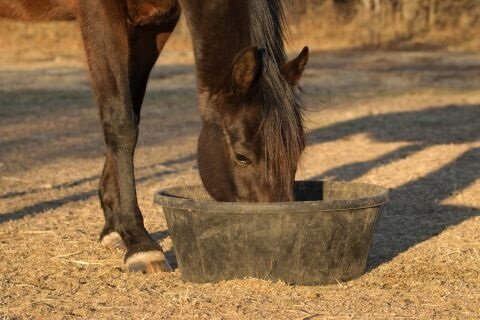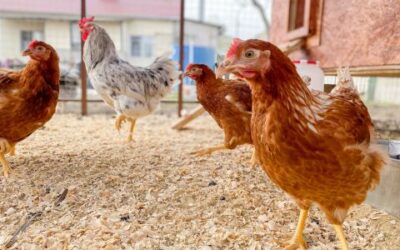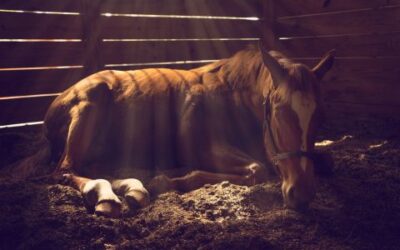
Horses are majestic creatures, but their digestive systems can be as delicate as their temperaments. Unlike us, they can’t exactly tell you their stomach hurts. That’s why it’s crucial for horse owners to be aware of the most common digestive problems these animals face. Early detection and intervention can make a world of difference in your horse’s health and well-being. Let’s saddle up and ride into the world of equine digestion, focusing on three of the most frequent culprits of digestive distress: colic, ulcers, and diarrhea.
1. Colic
Colic is a general term for abdominal pain in horses, and it’s a serious issue. It can encompass a wide range of causes, from gas buildup to impactions (blockages) and even twisted intestines. Symptoms of colic can vary depending on the severity and cause, but some common signs include the following:
- Pawing at the ground
- Rolling
- Kicking at the belly
- Lack of appetite
- Lethargy
- Sweating
If you suspect your horse has colic, immediate veterinary attention is critical. Early diagnosis and treatment can significantly improve the horse’s chances of a full recovery. Colic can be life-threatening, so don’t hesitate to call your veterinarian.
2. Gastric Ulcers
Horses have a single stomach, unlike ruminant animals like cows and sheep. This single stomach is susceptible to ulcers, which are painful sores caused by excess stomach acid. The most common culprits behind equine gastric ulcers are as follows:
- Diet: High-grain diets, especially those with sudden changes, can increase acid production and irritate the stomach lining.
- Stress: Horses are prey animals, and stressful situations like travel, competition, or changes in routine can contribute to ulcers.
- Medications: Certain medications, particularly non-steroidal anti-inflammatory drugs (NSAIDs), can irritate the stomach lining.
Signs of gastric ulcers can be subtle:
- Poor appetite
- Weight loss
- Depression
- Lethargy
- Flank pain
- Grinding teeth
If you suspect your horse has ulcers, consult your veterinarian. They can perform a gastroscopy (examination of the stomach with a scope) to confirm the diagnosis and recommend treatment options. Treatment typically involves dietary changes, medications to reduce acid production, and gastroprotectants to coat the stomach lining.
3. Diarrhea
Diarrhea is a common digestive issue in horses and can have a variety of causes:
- Parasites: Internal parasites can irritate the intestines and disrupt normal digestion, leading to diarrhea.
- Dietary changes: Sudden changes in diet, especially introducing new feeds or an excessive amount of rich food, can upset a horse’s digestive system.Infections: Bacterial or viral infections can also cause diarrhea.
- Stress: Just like with ulcers, stress can wreak havoc on a horse’s digestion and lead to loose stools.
The severity of diarrhea can range from mild and self-limiting to severe and life-threatening. Here’s what to watch out for:
- Frequency of manure production
- Consistency of manure (watery, bloody, etc.)
- Dehydration
If your horse has mild diarrhea that resolves within a day or two, it might not be a cause for immediate concern. However, if the diarrhea is severe, persistent, or accompanied by other symptoms, such as lethargy or colic, consult your veterinarian promptly.
Preventing Digestive Distress: An Ounce of Prevention
While some digestive problems can’t be entirely prevented, there are steps you can take to keep your horse’s gut healthy and happy:
- Feed a balanced diet: Work with your veterinarian to develop a diet that meets your horse’s individual needs and avoids sudden changes. Make sure that it includes high-quality, high-fiber hay.
- Provide clean water: Make sure your horse has access to fresh, clean water at all times.
- Manage stress: Minimize stressful situations whenever possible and provide your horse with opportunities to relax and graze.
- Regular deworming: Maintain a regular deworming schedule to keep parasites in check.
- Observe your horse: Pay attention to your horse’s normal behavior and manure production. Early detection of any changes can help you address potential problems before they escalate.
For horse owners, equestrians, and equine health enthusiasts, understanding and managing horse digestive system problems is essential for ensuring their health and happiness. Horses can be particularly vulnerable to a range of digestive issues, largely due to their unique gastrointestinal makeup.
By understanding these common digestive concerns and taking preventive measures, you can help your horse maintain a healthy gut and a happy demeanor. Remember, a healthy digestive system is the foundation for a healthy horse, and a healthy horse is a happy horse!




